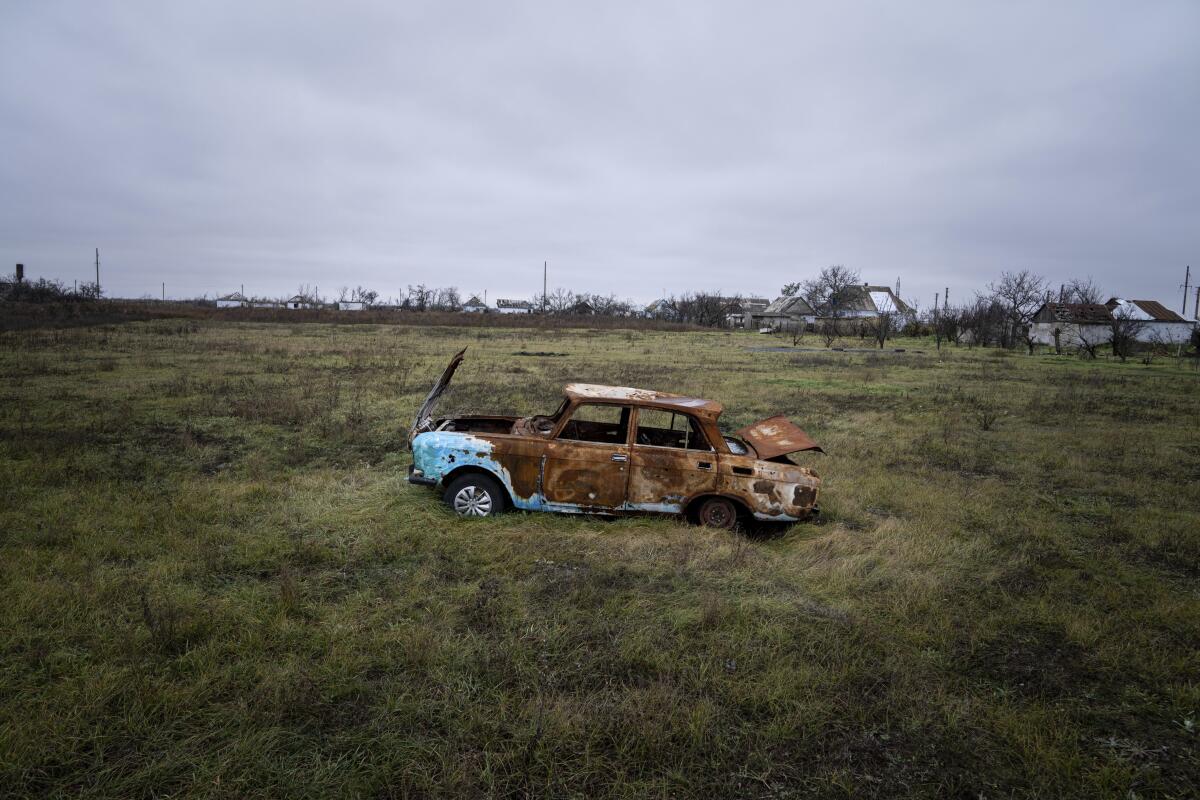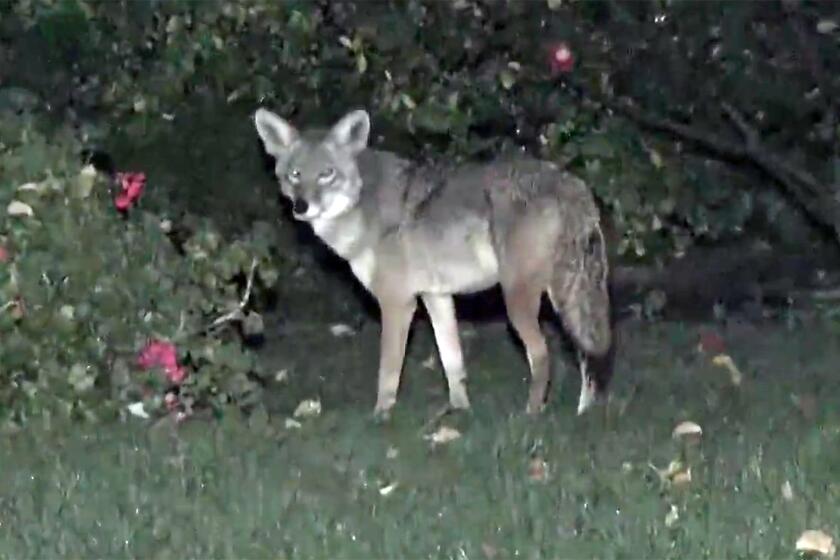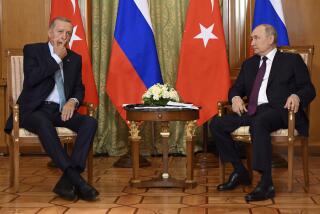Russia rejects $60-a-barrel cap on its oil, warns of cutoffs

Russian authorities rejected a price cap on the country’s oil set by Ukraine’s Western supporters and threatened Saturday to stop supplying the nations that endorsed it.
Australia, Britain, Canada, Japan, the United States and the 27-nation European Union agreed Friday to cap what they would pay for Russian oil at $60 per barrel. The limit is set to take effect Monday, along with an EU embargo on Russian oil shipped by sea.
Kremlin spokesman Dmitry Peskov said that Russia needed to analyze the situation before deciding on a specific response, but that it would not accept the price ceiling. Russia’s permanent representative to international organizations in Vienna, Mikhail Ulyanov, warned that the cap’s European backers would come to rue their decision.
“From this year, Europe will live without Russian oil,” Ulyanov tweeted. “Moscow has already made it clear that it will not supply oil to those countries that support anti-market price caps. Wait, very soon the EU will accuse Russia of using oil as a weapon.”
The office of Ukrainian President Volodymyr Zelensky, meanwhile, called Saturday for a lower price cap, saying the one adopted by the EU and the Group of 7 leading economies didn’t go far enough.
“It would be necessary to lower it to $30 in order to destroy the enemy’s economy faster,” Andriy Yermak, the head of Zelensky’s office, wrote on Telegram, staking out a position also favored by Poland — a leading critic of Russian President Vladimir Putin’s war in Ukraine.
A coyote attacked a toddler in broad daylight and tried to drag her away before her father rescued her, according to security video and the family.
Under Friday’s agreements, insurance companies and other firms needed to ship oil would be able to deal with Russian crude only if the oil is priced at or below the cap. Most insurers are in the EU or the United Kingdom and could be required to observe the ceiling.
Russia’s crude has already been selling for about $60 a barrel, a deep discount from international benchmark Brent, which closed Friday at $85.42 per barrel.
The Russian Embassy in Washington insisted that Russian oil “will continue to be in demand” and criticized the price limit as “reshaping the basic principles of the functioning of free markets.” A post on the embassy’s Telegram channel predicted the per-barrel cap would lead to “a widespread increase in uncertainty and higher costs for consumers of raw materials.”
“What happens in China will help shape whether the price cap has any teeth,” said Jim Burkhard, an oil markets analyst with IHS Markit. He said dampened demand from China means most Russian crude exports are already selling below $60.
The price cap aims to put an economic squeeze on Russia and further crimp its ability to finance a war that has killed an untold number of civilians and fighters, driven millions of Ukrainians from their homes and weighed on the world economy for more than nine months.
The General Staff of the Ukrainian armed forces reported that since Friday, Russia’s forces had fired five missiles, carried out 27 airstrikes and launched 44 shelling attacks against Ukraine’s military positions and civilian infrastructure.
Kyrylo Tymoshenko, the deputy head of the president’s office, said the attacks killed one civilian and wounded four others in eastern Ukraine’s Donetsk region. According to the U.K. Defense Ministry, Russian forces “continue to invest a large element of their overall military effort and firepower” around the small Donetsk city of Bakhmut, which they have spent weeks trying to capture.
In southern Ukraine’s Kherson province, whose capital city of the same name was liberated by Ukrainian forces three weeks ago following a Russian retreat, Gov. Yaroslav Yanushevych said evacuations of civilians stuck in Russian-held territory across the Dnieper River would resume temporarily.
Russian forces pulled back to the river’s eastern bank last month. Yanushevych said a ban on crossing the waterway would be lifted during daylight hours for three days. His announcement cited a “possible intensification of hostilities in this area.”
Kherson is one of four regions that Putin illegally annexed in September and vowed to defend as Russian territory. From their new positions, Russian troops have regularly shelled Kherson city and nearby infrastructure in recent days, leaving many residents without power. Running water remained unavailable in much of the city — and one resident was seen scooping up water from a dirty puddle.
The city continued to suffer heavy shelling Saturday that toppled power lines and dumped torn-off tree branches on the roads.
“When we start to repair [electricity networks], the shelling starts immediately,” said Oleksandr Kravchenko, who is in charge of high-voltage networks in Kherson. “We just repair electric lines and on the next day we have to repair lines again.”
The other regions annexed in violation of international law are Donetsk, Luhansk and Zaporizhzhia.
Ukrainian authorities also reported intense fighting in Luhansk and Russian shelling of northeastern Ukraine’s Kharkiv region, which Russia’s soldiers mostly withdrew from in September.
The mayor of the city of Kharkiv, which remained under Ukrainian control during Russia’s occupation of other parts of the region, said some 500 apartment buildings were damaged beyond repair, and nearly 220 schools and kindergartens were damaged or destroyed. He estimated the cost of the damage at $9 billion.
Russian Defense Minister Sergei Shoigu met Saturday in Minsk with the president and defense minister of Belarus, which hosts Russian troops and artillery.
Belarus has said its own forces are not taking part in the war, but Ukrainian officials have frequently expressed concern that they could be induced to cross
the border into northern Ukraine.
Belarusian President Alexander Lukashenko said at the meeting that his troops and Russian forces train in coordination. “We ready ourselves as one grouping, one army. Everyone knows it. We were not hiding it,” he was quoted as saying by the news agency Interfax.
More to Read
Start your day right
Sign up for Essential California for news, features and recommendations from the L.A. Times and beyond in your inbox six days a week.
You may occasionally receive promotional content from the Los Angeles Times.







